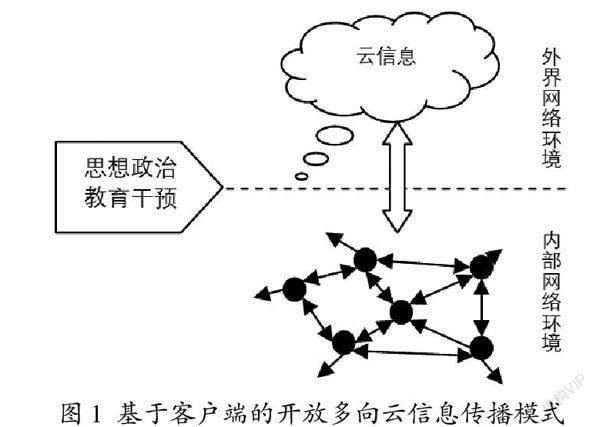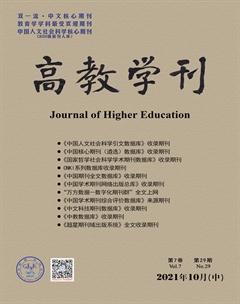人工智能背景下思想政治教育的风险机理和防范对策探究
孙智妍

摘 要:人工智能技术能够显著提升育人的针对性与时效性,在当前思想政治教育工作中发挥着举足轻重的作用。然而,从信息传递的角度来看,机械地引入人工智能技术必然为思想政治教育带来新的风险与挑战——思想政治教育信息安全。文章从信息传递角度出发,识别风险来源、揭示风险本质,进一步厘清人工智能下的思想政治教育所面临的现实问题,并建议采用与人工智能相兼容的保密通信技術规避风险。在此基础上针对人工智能背景下的思想政治教育风险防范提出对策,即增强“四个意识”、坚决做到“两个维护”,做到重视人的意识形态工作、加强青年学生的网络信息安全教育和构建信息安全技术体系三方面的协同。
关键词:人工智能;思想政治教育;信息安全;风险机理;防范对策
中图分类号:G640 文献标志码:A 文章编号:2096-000X(2021)29-0053-04
Abstract: Artificial intelligence technology can significantly improve the pertinence and timeliness of education. AI technology plays an important role in the current ideological and political education. However, from the perspective of information transmission, the mechanical introduction of artificial intelligence technology will inevitably bring new risks and challenges: ideological and political education information security. From the perspective of information transmission, this paper identifies the source of risk, reveals the nature of risk, further clarifies the practical problems faced by ideological and political education under artificial intelligence, and proposes to adopt the secret communication technology compatible with artificial intelligence to avoid risks. On this basis, this paper puts forward countermeasures against the risk of ideological and political education under the background of artificial intelligence, that is, to strengthen the "Four Consciousness", firmly achieve the "Two Maintenance", pay attention to people's ideological work, strengthen the network information security education of young students and build the information security technology system.
Keywords: Artificial Intelligence; ideological and political education; information security; risk mechanism; preventive measures
高速发展的人工智能技术,不仅为网络思想政治教育带来了便利,并且为新时代网络思想政治教育带来了全新的变革与挑战。《新一代人工智能发展规划》中提出要“围绕教育、医疗、养老等迫切民生需求,加快人工智能创新应用,为公众提供个性化、多元化、高品质服务”[1]。高效可靠的网络通信技术为网络思政带来了时效性,而人工智能技术拥有强大的数据分类、计算和决策能力,这些都为网络思想政治教育的开展提供了空前的便利条件。然而,网络通信技术本身长期存在着信息安全风险问题,思想政治教育信息在存储、转发与传递的过程中面临着被窃取、攻击甚至篡改破坏的风险;建立在通信网上的人工智能技术同样面临着信息安全问题,被攻击的数据、被篡改的算法将对人工智能的决策过程造成极大的破坏。因此,对新时代下网络思政教育面临的风险进行探究与识别就显得尤为重要。
一、思想政治教育的发展变革
思想政治教育经历了从互联网时代、大数据时代和人工智能时代的变革。以高开放度、强互动性为特点的互联网时代快速发展,使思想政治教育在网络上延伸成为可能,互联网为思想政治教育的互联互通提供了载体。随着互联网和通信技术的不断发展,海量繁杂的数据充斥着人们的生活和工作,将这些大量的数据信息进行有效地挖掘和分析,已经在思想政治教育中得到一定程度的运用。在高校中,学生使用网络平台进行交流所产生的文字、图片、视频等资料构成了大量的数据信息,如果它们能够被有效利用和研究,会产生出更有价值、有质量的信息和有规律性的结论,这将有助于实现学生管理科学化、学生服务精准化、思想政治理论课程教学个性化。
在移动互联网、大数据、超级计算、传感网、脑科学等新理论新技术以及经济社会发展强烈需求的共同驱动下,人工智能加速发展,呈现出深度学习、跨界融合、人机协同、群智开放、自主操控等新特征[1]。2017年国务院正式发布的《新一代人工智能发展规划》推动了新一代人工智能相关学科的发展,成为经济社会各领域向智能化加速跃升的新引擎。

